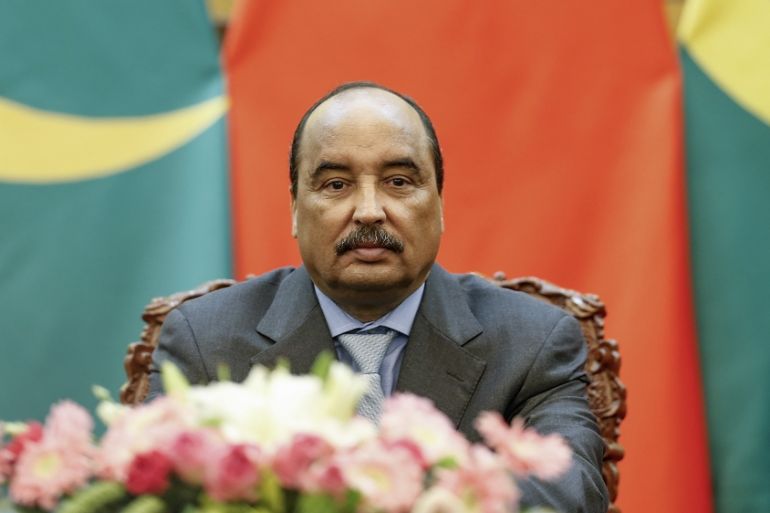Mauritania eyes peaceful transfer in presidential election
Voters set to choose among six candidates vying to succeed President Mohamed Ould Abdel Aziz.

Voters in Mauritania will head to the polls on Saturday to pick their next president, in what is expected to be the country’s first peaceful transfer of power.
Incumbent President Mohamed Ould Abdel Aziz will not contest the election after serving two five-year terms, despite opposition fears that he was plotting a tenure extension.
Keep reading
list of 4 itemsA flash flood and a quiet sale highlight India’s Sikkim’s hydro problems
Ruling HDZ party wins most seats, but no majority in Croatia election
Croatians vote in election pitting the PM against the country’s president
The 62-year-old came to power in a coup in 2008 and went on to win elections in 2009 and 2014.
In 2017, Mauritanians voted in favour of contentious constitutional changes, including replacing the Senate with elected regional bodies and changing the country’s national flag.
The opposition boycotted the referendum, calling it an effort by Abdel Aziz to bolster his decision-making power and pave the way to scrapping presidential term limits.
Around 1.5 million Mauritanians are eligible to vote, according to official figures. A runoff will be held on July 6 if there is no outright winner in Saturday’s vote.
Mauritania has never had a peaceful transfer of power since it won independence from France in 1960.
Here’s what you need to know about the elections.
Candidates
Mauritanians will choose among six presidential candidates vying to replace Abdel Aziz.
The leading contender is Mohammed Ould Ghazouani, a close associate of Abdel Aziz and a former defence minister.
Ghazouani, who took part in the 2008 coup, is also backed by the ruling elite in his bid for the presidency.
The 62-year-old has built a reputation as a fighter against armed groups and has vowed to continue Abdel Aziz‘s policies against security threats and boost national development.
Mauritania, like other nations in the Sahel region, faces a growing threat from armed groups, as well as the day-to-day challenge of underdevelopment.
Ghazouani’s main challenger is expected to be Sidi Mohamed Ould Boubacar, who hopes to win enough support to secure a runoff vote on July 6.
Nearly 30 percent of voters said they would vote for Ghazouani and 23 percent for Boubacar, according to a poll by the Mauritanian Centre for Strategic Studies and Research (CMERS), conducted among 1,300 people in the capital, Nouakchott, last week.
The four other candidates are anti-slavery activist Biram Ould Dah Ould Abeid, veteran opposition figure Mohamed Ould Moloud, journalist Baba Hamidou Kane – 2.6 percent – and political newcomer Mohamed Lemine El-Mourteji El-Wavi – 2.1 percent.
‘Competitive but peaceful campaign’
Abdel Aziz has been frequently accused by opposition figures and civil society groups of rights abuses, including the arrest of a former senator and the “secretive” detention of a blogger.
He has, however, described opposition leaders as “villains” and “troublemakers”.
The opposition has expressed concerns over the composition of the Independent National Electoral Commission, whose members they accuse of being too close to the government.
Paul Melly, a consulting fellow at Chatham House’s Africa Programme, said it was “likely that the elections will pass off peacefully”.
“The campaign has been conducted in a competitive but peaceful manner and major candidates from the opposition, as well as the government candidate Mohamed Ould Ghazouani, have been able to put their views across openly,” he told Al Jazeera.
“However, after last September’s legislative, regional and municipal elections, the opposition complained that the government had hampered its ability to monitor voting and the counting of votes. A repeat of that controversy cannot be ruled out, but the government has been keen to show that this election is a meaningful democratic contest.”